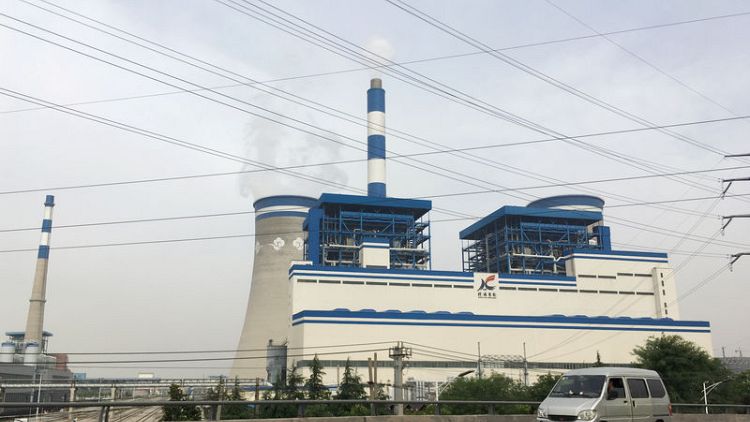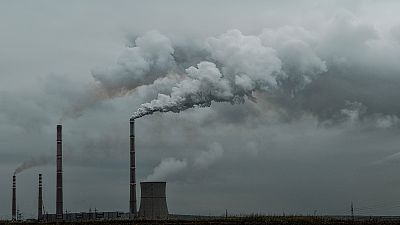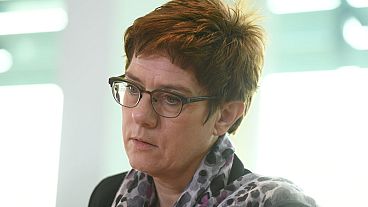By Muyu Xu and Elias Glenn
XUZHOU, China (Reuters) - The frontlines of China's war on pollution are moving beyond smog-prone Beijing and surrounding cities, driven by an effort to improve air and water quality across the country.
Jiangsu, which boasts China's second-biggest provincial economy, has become the next front in the battle to clean up the environment as Beijing seeks to head off public discontent and accelerate a transition to a greener economy.
In recent months, hundreds of steel, cement, and coal-fired power plants, as well as petrochemical makers, in the major industrial cities of Xuzhou and Lianyungang have been shut as local governments scramble to cut pollution, according to local authorities.
Up to now, anti-pollution measures have targeted provinces further north like Hebei, the steel heartland of China, according to official data.
Xuzhou started to implement its own restrictions on industrial activity after air quality worsened last year. Unlike the efforts further north, the Jiangsu city's efforts are not restricted to the winter season when coal-burning - and air pollution - spikes.
The Chinese government has made the campaign against air pollution a national priority and plans to advance the drive across China, expanding its scope to also include water, soil and waste treatment.
It is unclear so far how the campaign will affect China's economic growth target of 6.5 percent this year. The drive has hit industrial output in the north, but strong growth in other parts of the economy - like real estate and services - has helped soften the blow, according to official data.
The Xuzhou restrictions - which the government said would be temporary for an unspecified period - followed a visit by President Xi Jinping in December. During his visit, according to the official Xinhua news agency, he said "the new concept of green development should be strictly followed".
Air quality in Xuzhou was the worst of 74 major Chinese cities in the first five months of this year, according to data from the Ministry of Ecology and Environment.
The plant shutdowns in Xuzhou have left thousands of workers with only subsistence wages, disrupted businesses along the supply chain and those that rely on worker spending, according to company executives and workers in Xuzhou.
"No one knows exactly when the government will let us reopen," said Wang Guangrui, vice general-manager at Xuzhou Jinhong Steel Co, who estimated his daily losses at about half a million yuan, or about $80,000 (59,777.33 pounds).
Some steelworkers in Xuzhou said they have not been paid for two months.
"There is not much we can do. All factories in town are closed and I won't be able to find a new job," said a worker at Jiangsu Xingda Steel Co, one of 18 mills in Xuzhou.
Workers in Xuzhou told Reuters that over 20,000 people were out of work due to the shutdown.
The Xuzhou government did not immediately respond to a faxed request for comment.
In Lianyungang, a port city next to Xuzhou, more than 200 chemical companies have been shut since February after an industrial zone was exposed on national TV for illegal sewage disposal.
While the area smelled strongly of chemicals during a visit by Reuters, locals said air and water quality had improved since the closures, though some complained the measures were too extreme.
"I think it's unfair to close all of the companies in industrial parks only because a few of them violated environmental rules," said a worker, who asked to remain anonymous, at Rosi Chemical Co.
Another worker in the industrial park said local authorities had switched off gas supplies to companies and inspections to ensure there were no violations were being carried out at night.
Lianyungang government did not immediately respond to a request for comment from Reuters.
COLLATERAL DAMAGE
In Xuzhou, Zhao Song runs a restaurant with his wife near the front gate of a mill operated by Xusteel Group, the city's largest steel producer.
Zhao said his monthly earnings had fallen to 3,000 to 4,000 yuan from about 7,500 yuan since the mill closed.
"We make just enough to get by now," Zhao said as his toddler played among the tables. "We're actually lucky because we don't have any outside staff. Some bigger restaurants have closed because they can't pay their staff."
In Lianyungang, a shopping centre near apartment blocks housing workers at the closed chemical industrial park was nearly deserted during a midday visit.
The manager of a mobile phone store said business was down 80 percent since the plant closures.
As the anti-pollution campaign expands further south, policymakers will have to walk a fine line between cracking down on pollution and ensuring economic growth.
In Tangshan, an industrial city in Hebei, gross domestic product growth slowed from 6.5 percent last year to 5.6 percent in the first quarter.
PARADIGM SHIFT
Xuzhou has been offering incentives, including cash subsidies, to attract new businesses and develop a high-tech sector and transition away from heavy industry. The city recently started construction on an industrial park for cloud computing and factories making electric vehicles are being built in the area.
The city's economic growth has been steadily slowing over the last five years, but at 7.7 percent last year it was still well above the nationwide average.
TusStar, a startup incubator affiliated with Tsinghua University in Beijing, started operations in downtown Xuzhou two years ago as it looks to foster new businesses in the city.
Wang Tao, a Xuzhou native and partner at the local software startup Xuzhou Jiangxin Network Technology Co, moved back to the city last year from Shanghai.
Wang said the government offered subsidies of several tens of thousands of yuan to open an office in Xuzhou, where he has about 10 employees. He said Xuzhou had lower home prices and costs than Shanghai, and he praised the city's effort to improve the environment.
"If the pollution was as bad as it was 10 years ago, there's no way I would have moved back," said Wang.
(Reporting by Muyu Xu and Elias Glenn; Editing by Philip McClellan)



